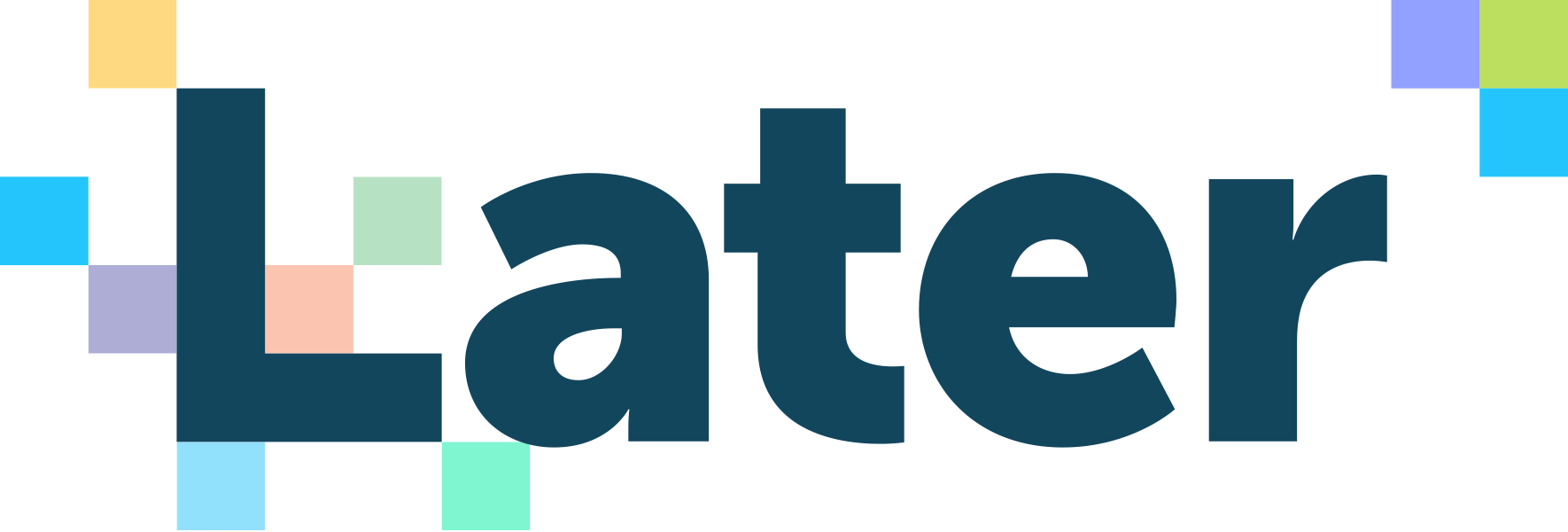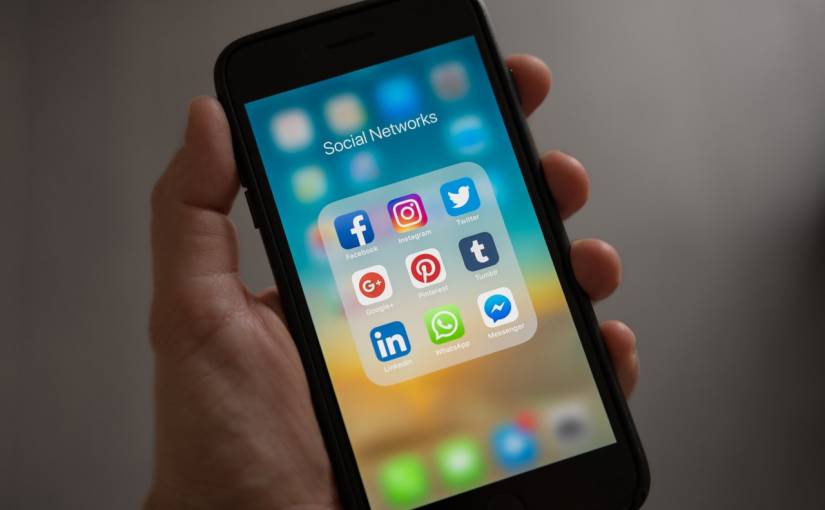For many years, social media was heralded as a universally beneficial new technology. It was seen as something that could keep us connected with our friends and family members, a tool to meet new people and support important causes, and a platform that could potentially allow us to redefine work and personal relationships forever.
To an extent, social media platforms have revolutionized the way we live and interact with others. Between 2006 and 2020, we’ve seen the rise and fall of dozens of platforms, with a few mainstays that have evolved over the years (for better and for worse). But where does social media go from here?
It seems like cultural attitudes toward social media are beginning to change, and if this trend continues, social media could feel the force of a full-fledged societal backlash. What would that mean for the future of social media? And how could this unfold?
Featured Partner for Social Scheduling  on Later's website
|
Increased Attention on Social Media
Part of the reason that social media is getting more negative attention is because it’s being scrutinized more heavily. Some of this is due to social media platforms attracting more users and becoming more embedded in our daily lives; naturally, more impactful platforms tend to get more attention.
Casting doubt.
But this is also due to a growing number of experts, celebrities, and other high-profile individuals casting doubt on the idea that social media is doing good for our society.
As a recent example, the Netflix documentary, The Social Dilemma has gotten significant attention for its insinuations that social media platforms are dividing us and making us miserable.
Featured Partner for Social Scheduling  on Later's website
|
There have been hundreds of books published in the past few years studying the correlations between social media use and mental health issues. Millions of people, including reputable authorities, have pledged to delete their social media accounts, or claim to periodically “detox” by not using these social channels (or using them in different ways).
The social media scrutiny.
It’s also worth noting that social media companies are facing increased scrutiny from politicians and policymakers all over the world.
CEOs are being interrogated by members of Congress, and leaders across the globe are questioning whether it’s important to impose new limitations on what social media companies can do—or even nationalize these platforms.
…miserable!
Collectively, all this attention is making users more aware of the dangers and drawbacks of the platforms they use. And this isn’t exactly new information; if you talk to the people in your social circle who seem to use social media the most, they’ll likely acknowledge that it harms their mental health or makes them miserable, at least in some way.
The Issues With Social Media
There are a number of negative issues associated with social media, which users are becoming increasingly aware of. For example:
- Depression, loneliness, and anxiety.Many people who use social media platforms excessively, or even regularly, suffer from mental health afflictions like loneliness, depression, and anxiety.There are many reasons for this. For example, social media tends to put pressure on people to keep up with their friends; images of people you know going out and having fun while you’re home alone can make you feel like you’re missing out, or that you’re unimportant.
Similarly, social media newsfeeds tend to favor emotionally charged stories, making it more likely for you to read bad or infuriating news on your timeline, rather than seeing more positive stories.
On top of that, social media gives you the illusion of connectedness, making you less likely to reach out to the important people in your life in meaningful ways.
- Data privacy issues.Social media companies, especially Facebook, have been criticized for their lack of data privacy and lack of transparency and user control. For example, most social media platforms openly collect millions of data points on their users, selling them to advertisers as a way to generate revenue.The data-point-selling is why most social media platforms are free. But what happens when third-party apps can collect this information, or even more information on you, without your consent?
You may have your profile set to private, but are you sure that other people or organizations can’t find meaningful data on you? Social media platforms have earned a reputation for neglecting privacy.
- Censorship and information control.Social media companies also have the power to censor or remove stories they don’t like; they have some degree of control over the information that circulates on their platforms. In some ways, this is a good thing for users.For example, Google is known for penalizing sites that violate its terms of service, leading to search users having a better all-around experience when trying to find valuable content online (incidentally it’s one of the reasons rankings fluctuate frequently as well).
Facebook, Twitter, and other platforms take a proactive role in removing content from circulation that could be harmful or disturbing to its users, such as violent or pornographic material.
This is a form of censorship most people are fine with. But what about deliberately removing mentions of a story that could harm a favored political candidate?
- Echo chambers and bubbles.Most of us have fallen into echo chambers and bubbles, whether we realize it or not. We tend to seek out and engage with like-minded people, who reinforce our opinions and our own worldviews.In small numbers, this isn’t a terrible consequence, but it can lead to increased polarization across society and lead to distorted facts and information.
- Misinformation and disinformation.Speaking of inaccurate information, social media platforms are also rife with misinformation and disinformation. It’s incredibly easy to post and circulate “fake news” or misleading headlines on social media, and individuals and organizations all over the world use this to their advantage.Even if the story isn’t true, a circulating headline can do an incredible amount of damage if enough people see it.
- Addiction potential.It’s also worth noting the potential for addiction, or at least compulsive behaviors associated with social media apps. Social apps tend to be designed in a way that encourages repetitive, or even constant use.There are bright red alerts and noisy notifications that demand your attention constantly. There is a never-ending infinite scroll of content to discover. And there are always new channels to find and new people to reach out to.
In extreme cases, this can lead to tech addiction.
- Use by children.Many adults have the maturity and cognitive potential to be aware of these issues and overcome them, but children may not be in a similar position.Increasingly, preteens and teenagers are using social media on a daily basis, and they’re being subjected to heightened versions of all these issues due to their vulnerabilities.
Can We Reach the Tipping Point?
Most of the issues listed above will be familiar to you, yet you probably still use at least one social media platform on a regular basis. What’s stopping you? Do you think you get more positive effects than negative effects when using this platform?
Featured Partner for Social Scheduling  on Later's website
|
Or do you feel social pressure to keep using these apps because everyone else in your social circles are using them? Perhaps the tailored content is more meaningful there and other avenues are therefore lackluster?
What about the global social media scene?
Globally, social media user numbers aren’t declining; they’re increasing. And the more people using social media on a regular basis, the harder it is for any individual to voluntarily remove themselves from it.
That’s why, even though there are short-term pushes to “#deletefacebook” or “#deletetwitter,” these moments appear to be temporary. The waves of backlash a social media company can face are somewhat limited, because sooner or later, users want to come back and see what their friends or followed channels are saying.
Is there a way the backlash could grow so extreme and so powerful that it actually leads to a meaningful change?
After this long with the social media challenges—can there be a purposeful, worthwhile change??? We have to ask — is there even a chance that existing social media companies are capable to change how they operate or new social media companies rising to challenge the social media scene? That remains to be seen.
Facebook now has nearly 3 billion monthly active users, Instagram has more than 1 billion, and Twitter has more than 330 million. And many of those users, despite consciously acknowledging the drawbacks of these platforms, continue using them willingly, and following each change presented by the companies in charge of their management.
Featured Partner for Social Scheduling  on Later's website
|
What’s Up?
Overall, despite increased attention on the negative aspects of social media and countless books, podcasts, and documentaries covering the topic, there probably won’t be a significant wave of backlash to put increased pressure on social media companies.
That said, if these problems get worse before they get better — it could motivate action.

















